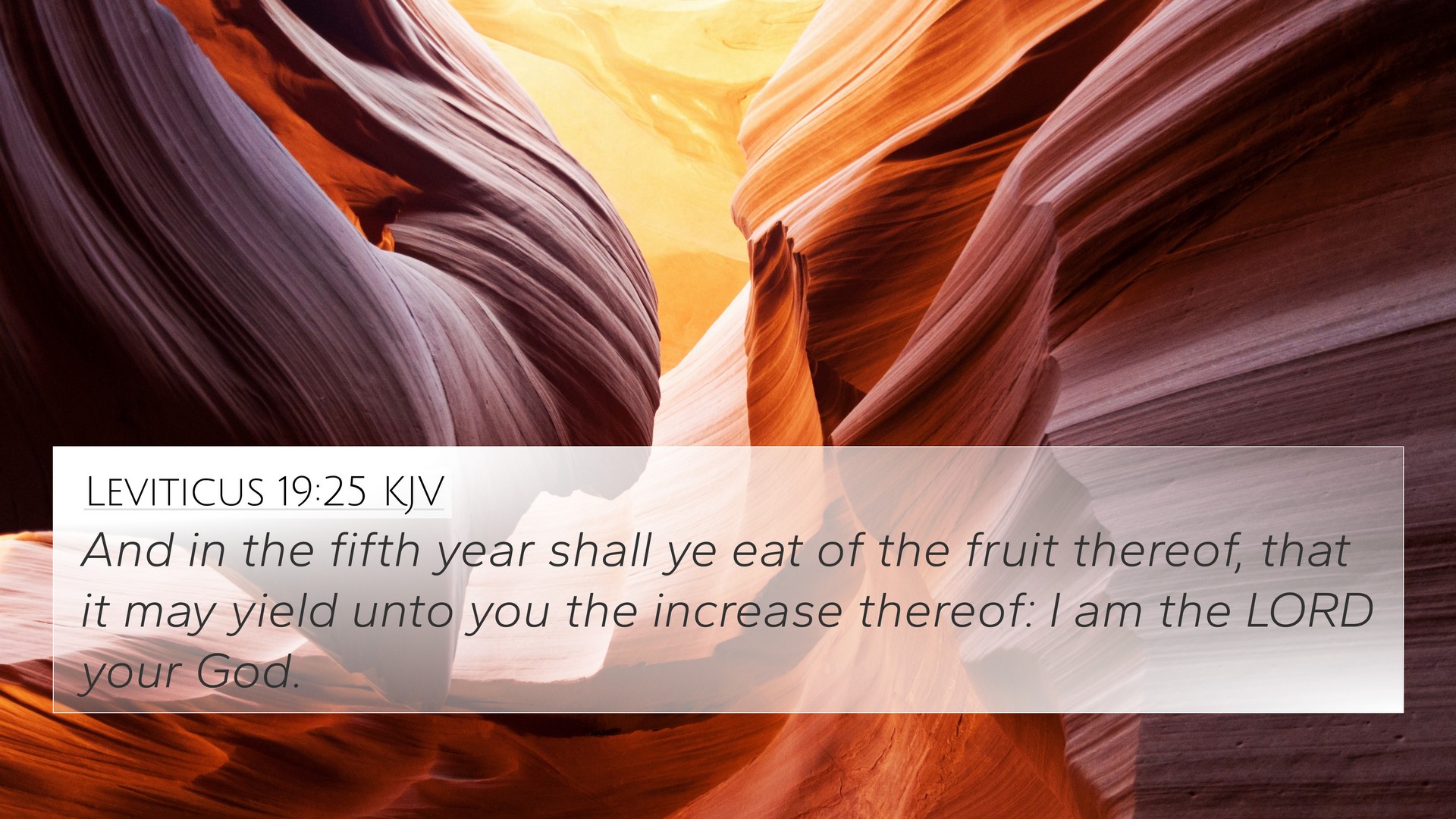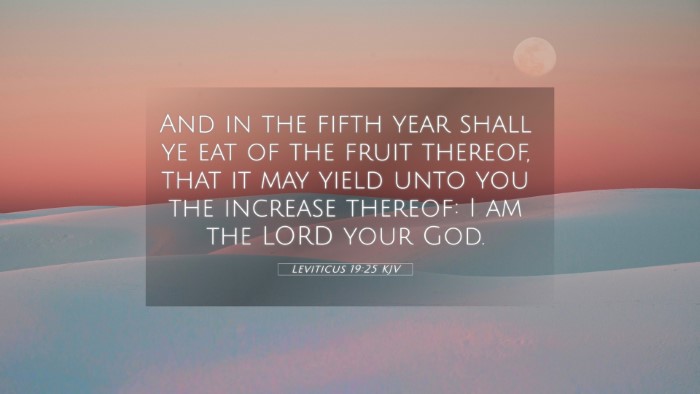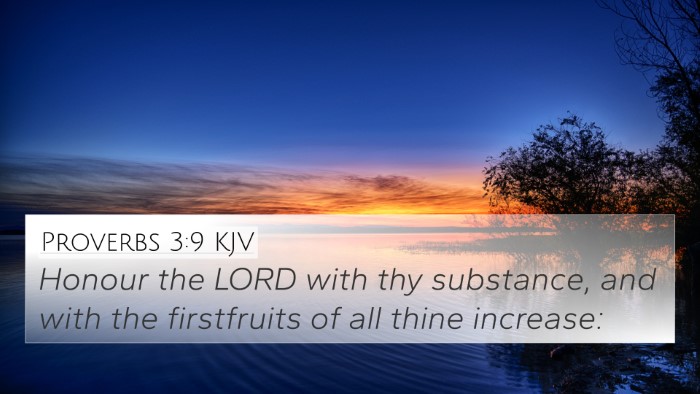Understanding Leviticus 19:25
Leviticus 19:25 states, "And in the fifth year you shall eat of its fruit, to increase its yield for you: I am the LORD your God." This verse is an integral part of the laws given to Israel, regulating agricultural practices and addressing broader themes of stewardship and holiness before God.
Context and Background
The Book of Leviticus is centered around the holiness of the Israelites, calling them to distinct practices that separate them from other nations. This particular verse addresses the importance of agricultural produce and the divine guidelines on how they should manage their land.
Commentary Insights
Various commentaries provide rich insights into this verse:
- Matthew Henry: He emphasizes that this command was to ensure that God's people practice patience and faith in God's provision. The fifth year signifies a time of maturation and readiness to reap the benefits, teaching the importance of timing in God’s order.
- Albert Barnes: Barnes highlights that the Israelites were to allow the trees to mature fully before harvesting, reflecting God's order and intention for gradual growth that ultimately leads to abundance. He points out how God's principles can be applied to various areas of life beyond agriculture.
- Adam Clarke: Clarke notes the importance of spiritual implications and ethical considerations in land use. The command invites a sense of responsibility towards creation and promotes stewardship where the Israelites should benefit from the land without exploitation.
Thematic Connections
The themes present in Leviticus 19:25 can be applied within a broader theological context:
- Stewardship: The principle of managing resources effectively, acting as caretakers of God's creation.
- Patience and Timing: Emphasizing the need for waiting on God’s timing for growth and provision.
- Holiness and Obedience: Reflecting a life lived in accordance with God's precepts leads to greater blessings.
Cross-References
Leviticus 19:25 can be connected to several other Scriptures that align with its themes:
- Genesis 1:28: God’s command to mankind to fill the earth and subdue it, promoting stewardship of the earth.
- Deuteronomy 24:19: Instructions to leave perishables for the poor, thus promoting social responsibility in farming practices.
- Isaiah 28:23-29: The lessons in agricultural practices as reflective of God’s ultimate wisdom.
- Matthew 6:33: The call to seek God first, assuring that needs will be met.
- Galatians 6:7: The principle of sowing and reaping, encouraging believers that their actions and obedience have consequences.
- James 5:7: Encouragement to be patient like a farmer waiting for fruitful harvests.
- 2 Corinthians 9:6: The principle of generosity leading to abundance in blessings.
Practical Applications
Understanding Leviticus 19:25 can help believers in several ways:
- In Agricultural Practices: Apply principles of patience, care, and responsible stewardship in farming or resource management.
- In Spiritual Growth: Wait on God’s timing for personal and communal growth, embodying faithfulness in God’s commandments.
- Community Outreach: Reflect God’s concern for the marginalized through ethical practices in business and resource allocation.
Conclusion
Leviticus 19:25 teaches timeless truths about stewardship, patience, and obedience to God's laws. By cross-referencing this verse with other biblical texts, believers can gain a deeper understanding of the connections within the scripture, enhancing their spiritual lives and practices. Engaging in such cross-referencing Bible study benefits not only personal growth but also enriches community understanding of God's holistic plan for His creation.
Further Study
For those interested in exploring the connections between Bible verses further, consider utilizing a Bible concordance or a cross-reference Bible study guide. These tools can enhance the understanding of biblical themes and promote deeper dialogue with the text.









